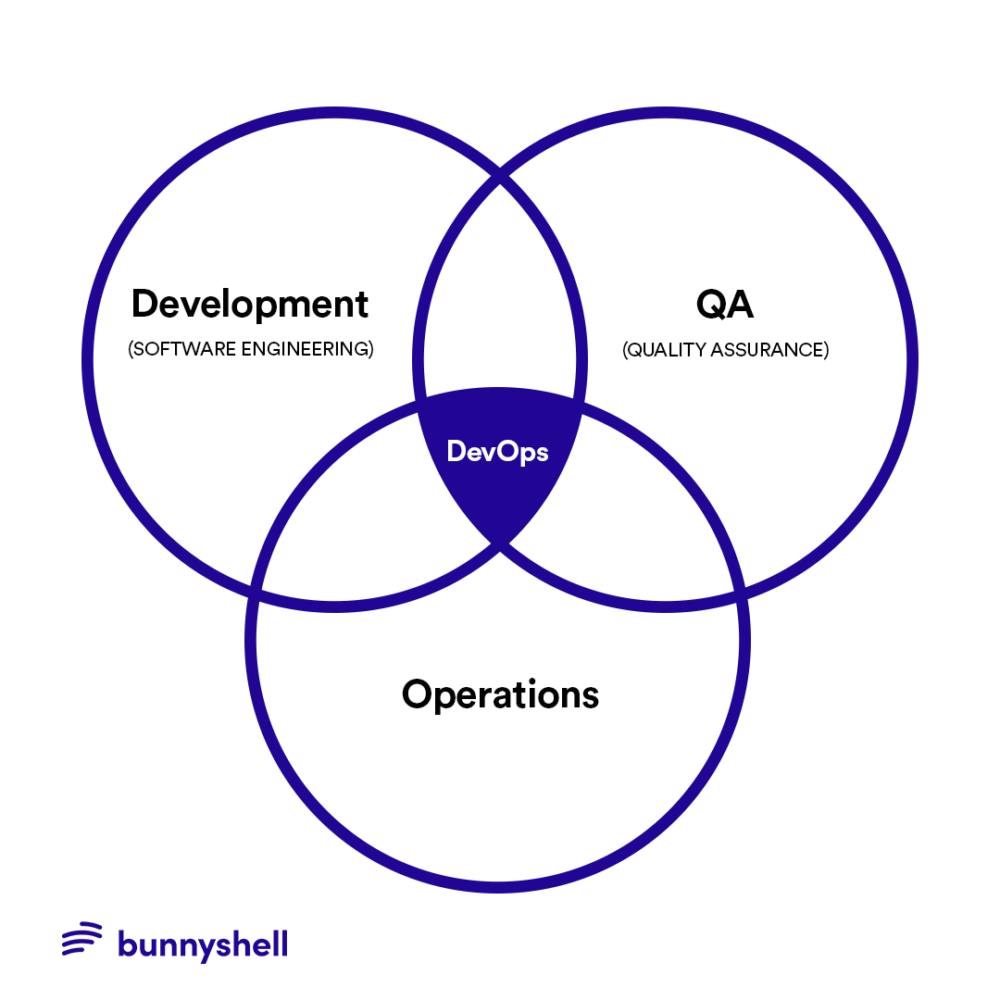Both SysOps (system operations) and DevOps (development operations) are two central components of Cloud Computing, one of the leading technologies of the last decade. As some organizations find it difficult to distinguish between the two, we have decided to cover their similarities and differences in detail.
Essentially, both terminologies are extremely popular with companies, as they both work to provide functionalities to help increase the productivity of the business.
Background
In this article, we will talk about what SysOps and DevOps are, main differences and similarities, frequently asked SysOps questions, as well as the solution Bunnyshell offers.
The discussion around these two philosophies is a very important one because, ultimately, the nature of the tasks they undergo are very similar to each other. The main differences that occur, as we will show you later on, happen in the delivery, update reactions, entity change, approach towards service, and code development.
We will also cover more specific concepts relating to SysOps, its delivery model, and some areas we see it being used.
Summary
In this article, we will cover the following points:
- Short intro to DevOps
- Short intro into SysOps
- Main differences between SysOps and DevOps
- Main similarities between SysOps and DevOps
- Frequently asked questions about SysOps
- The Bunnyshell solution
Short Intro to DevOps

The DevOps approach aims to maximize operational processes. The main purpose of DevOps is speed, and it uses a delivery model where teams develop, write, test, and release application software in short time cycles. To make time cycles shorter and the releases more stable, DevOps relies heavily on automation. Automation platforms, in turn, enable engineers to accomplish tasks that would have otherwise required help from other teams independently.
If you want to read more about the meaning of DevOps and the role of automation, check out our dedicated blog post.
Short Intro to SysOps
The SysOps approach is focused on making the system processes work smoothly in an organization. For SysOps, the configurations are taken care of at individual levels, being centralized around infrastructure, compared to DevOps, which, although it has the same way of managing infrastructure, relies on the latest automation tools to get it taken care of.
SysOps delivery model is based on ITIL (Information Technology Infrastructure Library), which is a set of thorough guidelines that focus on aligning business goals with IT services. Through this ITIL delivery model, the firm or organization can form a baseline from which it can design, execute, and measure. It will show compliance and estimate improvement.
SysOps Use Cases
We will highlight some ITIL-based models which have been adopted by an organization:
- MOF (Microsoft Operations Framework) – a series of 23 documents that help IT professionals to create, implement, and manage cost-effective and efficient services
- Hewlett Packard (HP reference model) – a tool useful in presenting several different management processes, inter-process relationships, and business linkages for IT to successfully implement services in the e-world.
- IBM (IT business model) – industry template used to define common business processes and services across the enterprise
Main Differences | SysOps vs DevOps
Choosing between these two methodologies is a matter of personal preference and requirements. Below, you will find a table outlining some key differences between SysOps and DevOps.